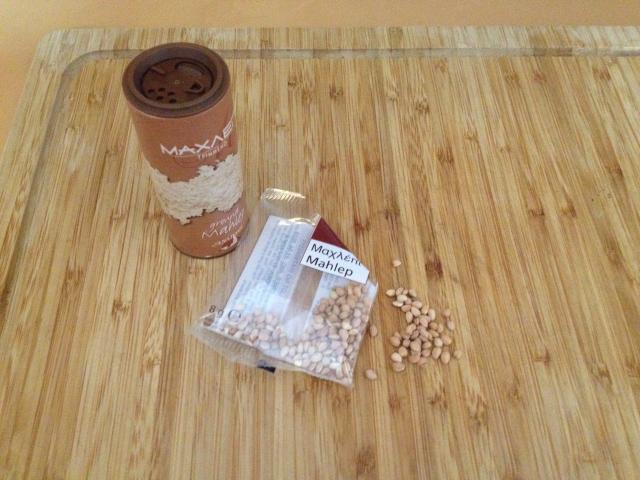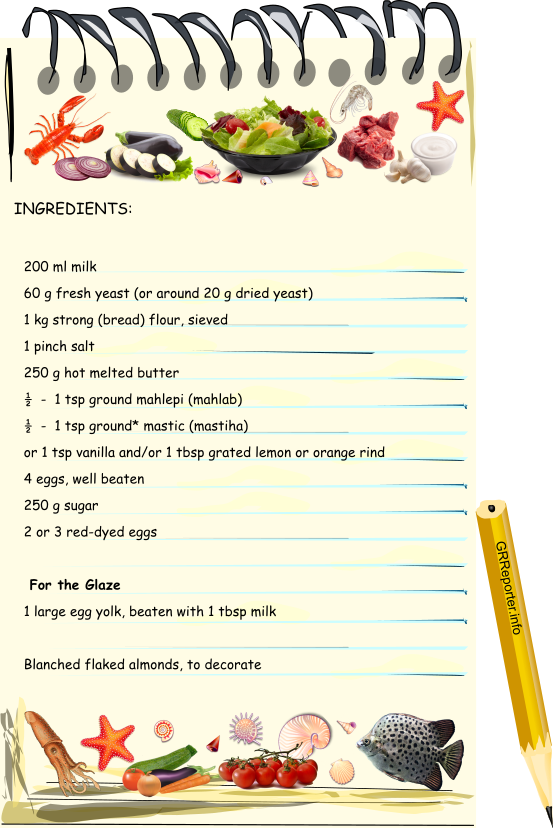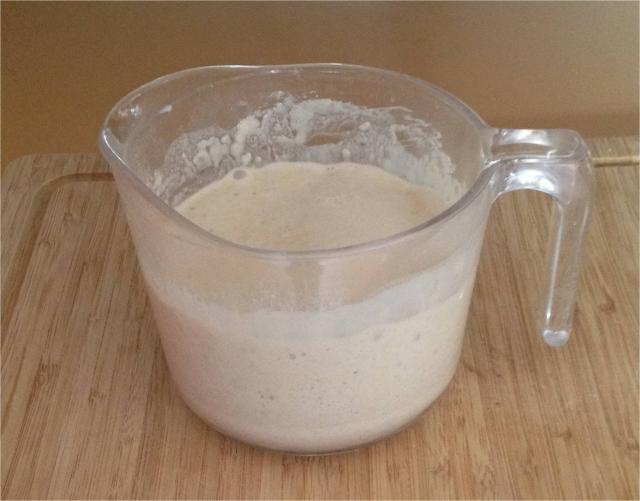Danielle Lachana
This sweet yeast Easter bread, known as ''Tsoureki'' in Greek, is served on Easter Sunday, to break the fasting for Lent. Its particular taste is given by the use of Mahlepi (ground wild cherry seed kernels)

and Mastic (the sap of the Mastic tree native to the island of Chios - dried into resin 'tears'). For more on mastic see http://www.grreporter.info/en/mastic_ice_cream/11452.
Both Mahlepi and Mastic can also be found ready ground, but for the best taste pound your own to a powder*. Do not worry if you cannot find these products, or if you do not like the taste, they can be substituted by finely grated lemon or orange rind, and/or 1 tsp vanilla essence. (Ground fennel seeds, or anise seeds are also often used).
Tsoureki is traditionally made on Holy Thursday - which is also the regular egg-dying day. Its traditional look comes from it being braided (plaited), with one, or more, red-dyed**, hard-boiled eggs inserted in the braid. To avoid the red-dye staining the bread during cooking, insert ordinary raw (or hard-boiled) eggs in the braid and replace them with red-ones in the cooked, completely cooled bread.
If using dried yeast, types and strengths can vary so follow packet instructions regarding quantities.
Allow enough time to make this recipe, bearing in mind the amount of time required for the three risings. True, there are quicker methods but the traditional one produces a more authentic textured Tsoureki - and it is worth the extra effort to truly celebrate Easter, which for the Greeks is the most important time of the year.
***
RECIPE

METHOD
In a medium-sized bowl, heat the 200 ml milk until just warm (between 32o C and 38o C [90o F - 100o F], if you have a cooking thermometer). Do not overheat, or it will 'kill' the yeast and the bread will not rise.
Dissolve the yeast, crumbled if fresh, in the milk. Add 60 g of the flour and mix until it forms a thickish paste, 'squashing' out any lumps. Cover the bowl with cling film (plastic wrap) and wrap it in a towel or blanket. Leave this 'starter' dough to rise in a warm, draft-free place (ideally between 27o C and 32o C [80o F - 90o F) until doubled in bulk - about 30 minutes to 1 hour (longer if in a cooler place).
The risen ''starter''
